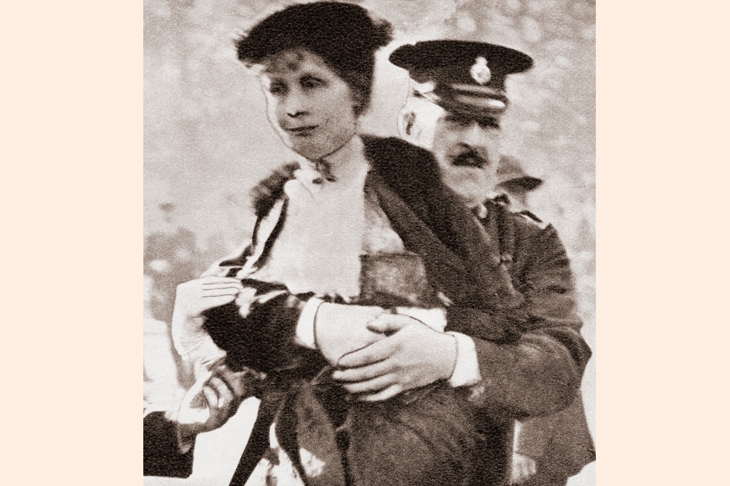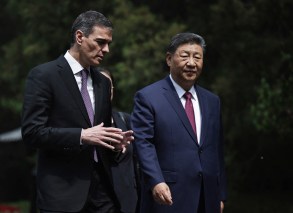When Westminster Council granted planning permission for a statue of Millicent Fawcett in Parliament Square to mark this year’s centenary of women getting the vote, many people were puzzled. Few had heard of this feminist campaigner, and even fewer knew about the suffragist movement which she led. The suffragette Emmeline Pankhurst seemed a far more appropriate candidate for a statue. Not only was she famous, but some feminist historians claimed that her role in gaining the vote was more important. These two books stand on different sides of the debate. Diane Atkinson has written a collective biography celebrating Mrs Pankhurst and the suffragettes, while Jane Robinson makes the case for Millicent Fawcett and the suffragists.
The two leaders were very different. Fawcett was a plump, bespectacled Edwardian matron and her sister, Elizabeth Garrett Anderson, the first female doctor. Millicent was a serious-minded woman who was converted to the feminist cause by John Stuart Mill. Emmeline Pankhurst, who founded the Women’s Social and Political Union (WSPU) in 1903, was slight and charismatic, an electrifying speaker and a fiery Manchester radical.
Mrs Pankhurst was a remarkably modern leader. She understood the power of celebrity, and she exploited it brilliantly. She and her two daughters, Christabel, her favourite, and Sylvia, who was never so close to her mother, enjoyed rock-star fame. Emmeline enlisted a working-class poster girl, the mill worker Annie Kenney, thereby broadening her appeal beyond the middle-class women who traditionally supported the vote. The suffragettes relied on sensationalism not persuasion; their slogan was ‘Deeds not Words’.
For years Millicent Fawcett and her suffragist friends of the National Union of Women’s Suffrage Societies (NUWSS) had campaigned for the vote, petitioning, holding meetings, passing resolutions and acting in a peaceful, constitutional way. But they got nowhere. When it became clear in 1905 that the incoming Liberal government had no intention of enfranchising women, Mrs Pankhurst decided to up the ante.
Christabel Pankhurst and Annie Kenney sneaked into a political meeting, shouted ‘Votes for Women!’, got themselves arrested and were sent to prison.








Comments
Join the debate for just £1 a month
Be part of the conversation with other Spectator readers by getting your first three months for £3.
UNLOCK ACCESS Just £1 a monthAlready a subscriber? Log in